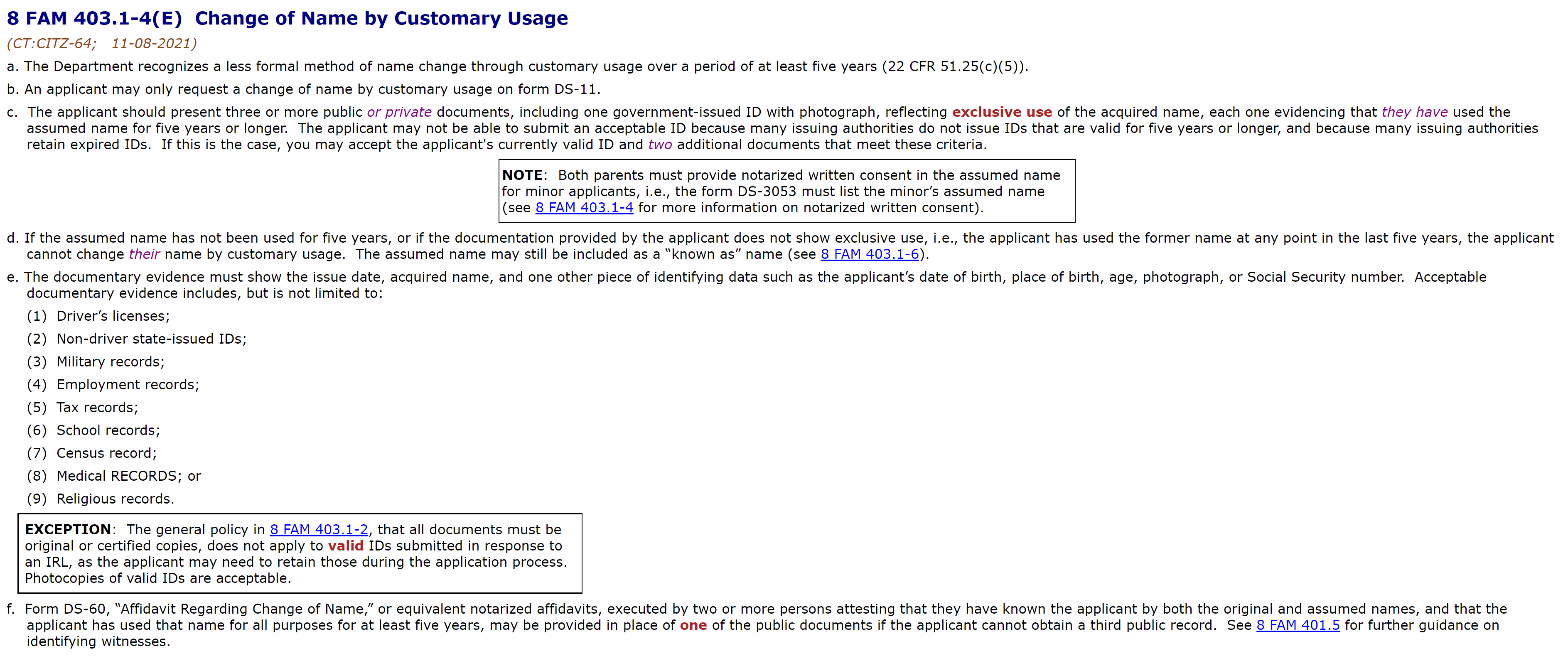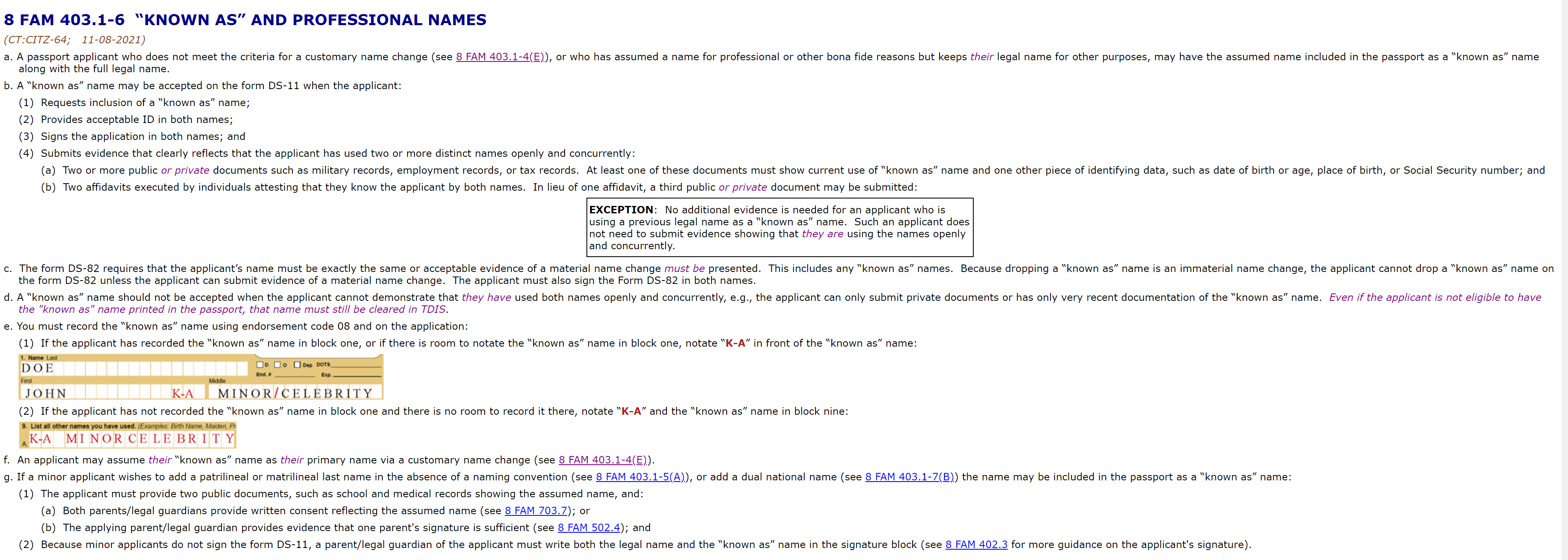You can change your name on your passport by Common Law usage. United States v. Cox, 593 F. 2d 46 provides:
The second rule is that statutes are to be interpreted with reference to the common law and where there is no indication to the contrary, given their common law meaning. United States v. Monasterski, 567 F.2d 677, 681-82 (6th Cir. 1977). Applying these principles to section 1542 we conclude that it is not violated by one who lists a legally adopted name on a passport application. The term "false statement," strictly construed, cannot be held to include use of a legally adopted name. Under the common law a person may freely change his or her name without any legal formalities. Thus, application of both rules of statutory construction leads to the conclusion that there was no evidence that the defendant made a false statement on his passport application.
22 CFR § 51.25 states:
(c) A name change will be recognized for purposes of issuing a passport if the name change occurs in one of the following ways.
(4) Operation of state law. An applicant must present operative government-issued legal documentation declaring the name change or issued in the new name.
(5) Customary usage. An applicant who has adopted a new name other than as prescribed in paragraphs (c)(1) through (4) of this section must submit evidence of public and exclusive use of the adopted name for a long period of time, in general five years, as prescribed in guidance issued by the Department. The evidence must include three or more public documents, including one government-issued identification with photograph and other acceptable public documents prescribed by the Department.
8 FAM 403.1-4(E) provides:

8 FAM 403.1-6 provides:


